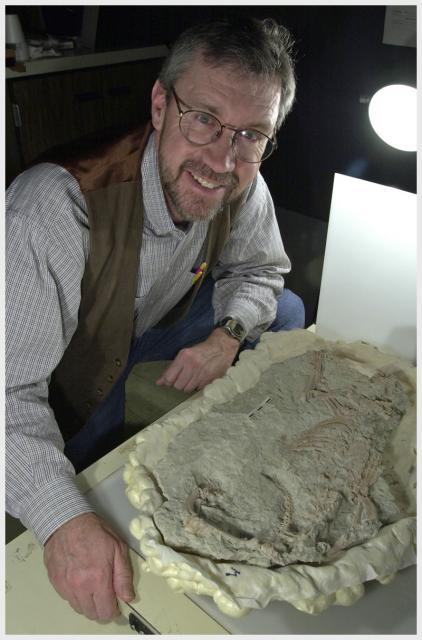 David Krause
David Krause
Distinguished Service Professor Emeritus
Education
PhD, University of Michigan, 1982
Visit the Krause Lab
Research : Systematics, biogeography, functional morphology, paleoecology, biochronology of Mesozoic and Early Cenozoic mammals, evolutionary and biogeographic history of the Gondwanan vertebrate fauna, biogeographic origins of the extant Malagasy vertebrate fauna.
The main focus of Dr. Krause's research is the evolutionary history and paleobiology of Mesozoic and Early Cenozoic vertebrates, particularly mammals. Almost all of this research is based on field-oriented programs, primarily in Madagascar and the Western Interior of North America.
The Madagascar project is concentrated on Late Cretaceous vertebrates from the Mahajanga Basin. Thirteen expeditions to the basin since 1993 have quintupled the known diversity of Late Cretaceous vertebrate species from the island. Among the discoveries are the first pre-Late Pleistocene records of mammals, birds, and frogs on the island. Many of the vertebrate taxa, including frogs, turtles, crocodyliforms, non-avian dinosaurs, birds, and mammals, are represented by nearly complete, exquisitely preserved skulls and/or skeletons that have provided critical new data with which to test phylogenetic hypotheses. The project has also provided the opportunity to address questions concerning the Mesozoic plate tectonic and biogeographic history of Gondwana and, more specifically, the biogeographic origins of the highly endemic modern vertebrate fauna of Madagascar.
The collections that Dr. Krause, colleagues, and students have amassed from the western United States (particularly from Paleocene deposits in the Crazy Mountains Basin of Montana) have provided the opportunity to test hypotheses correlating mammalian faunal turnover and climatic changes during the Paleocene and early Eocene. Many new taxa have been discovered and, as a result, phylogenetic patterns within a number of lineages have been elucidated. Additionally, through studies of functional morphology, the dietary and locomotory habits and diel activity patterns of several previously poorly known forms have been determined. These analyses have allowed both theoretical and empirical aspects of competition in the fossil record to be assessed.